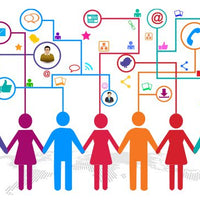
In Your Corner
,
Leadership and Change Management
Leading Without a Map: Responding to Protests
For months our thinking, planning, actions, and worries were focused on COVID-19 and its impact on so many things we took for granted. We also watched and worried as our economy was paused. Millions of people lost their jobs. The need for food banks and financial assistance grew quickly from support that some people needed, to a lifeline for tens of thousands of families who never imagined relying on the generosity of neighbors and communities. It seemed all-consuming.
Then, events of the past few weeks have challenged our consciousness once again to confront yet another crucial issue that for too long has been ignored. Multiple tragic, heart-rendering events reminded us that segments of our society, especially black members, face bias, barriers, and discrimination that, while long discussed, remain present. Protests across our nation have testified to the intensity and severity of the circumstances and challenges we face as a nation and society.
As leaders, we have a special responsibility during this time. We must accept that despite what we have said and efforts we have made, the causes and consequences associated with this condition remain. The question is, “What should we do now—right now—to begin to address the challenge and begin to turn the situation around?” Unfortunately, there are no easy or universal answers. Each of us must examine our heart and accept the challenge of making the future better.
Still, there are some universal leadership truths that apply in circumstances such as these. First, we need to understand that the voices and protests we are hearing grow out of fear, anxiety, frustration, and disappointment. These feelings are real. We need to validate and accept this reality and offer reassurance and understanding; not respond with rigidity and pressure. We need to listen, acknowledge feelings, and demonstrate respect—and learn.
We need to do more than say the right things. The “right things” have been said too often in the past while not followed by actions. Our leadership will be judged by what we do, not what we say. The new opportunities we help to create, unhelpful policies we change, and harmful practices we abandon will be what makes the difference. Only when our actions change people’s experiences will what we say be taken seriously.
Further, we need to help people to find their personal power. We absolutely must create conditions where those that have been ignored, underestimated, and held back have a path to success. However, we also must create conditions where they can tap, build, and apply their personal power. It is not enough to create opportunities. We must provide the support, encouragement, and resources to help each person see and pursue the opportunities open to them. Some of us have had the privileges of race and wealth that offered these advantages, often without our even being conscious of their presence. We need to support such advantages for all.
The combination of the pandemic, recession, and protests against inequities and racism present a unique—probably once in a lifetime—challenge, but it also represents what is the greatest opportunity for and potential consequence of leadership. Where will you choose to start?
Questions:
- What policies have been in place for a long time that deserve to be reviewed and adjusted or dropped?
- What current practices may be harmful to the goal of all students receiving the encouragement, support, and opportunities they need to succeed?
- What are some first steps you can take to demonstrate your commitment to value and support the success of all students regardless of background, race, or history?

Take Your District and School Professional Learning to a New Level!
learn more
- Teachers
- Administrators
- Paraeducators
- Support Staff
- Substitute Teachers

- Teachers
- Administrators
- Paraeducators
- Support Staff
- Substitute Teachers






Leave a comment
Your email address will not be published. Required fields are marked with *